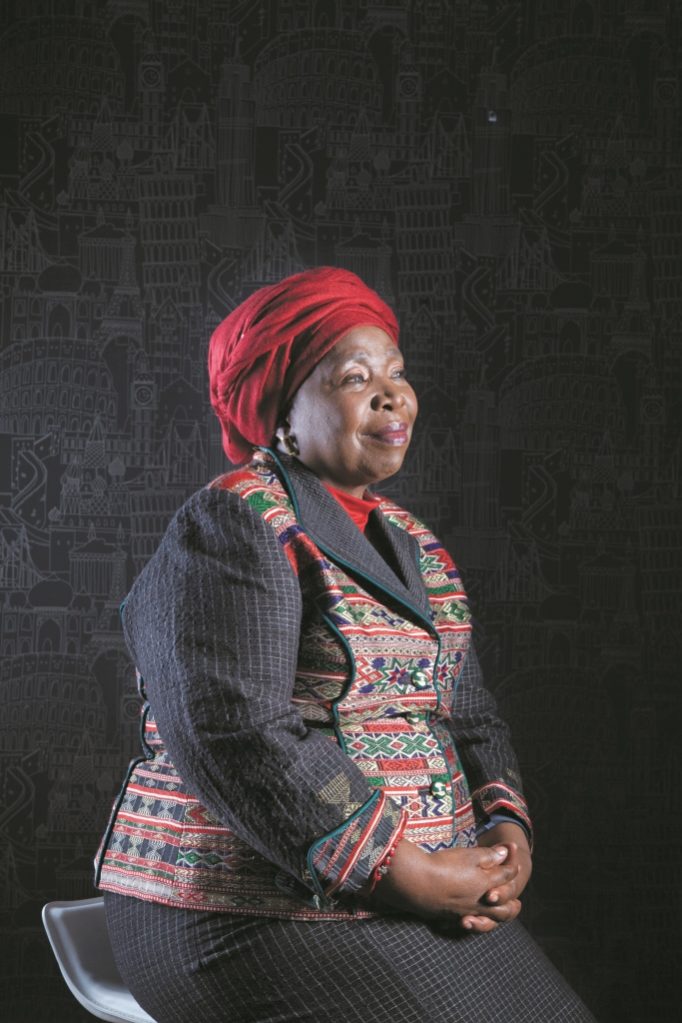As chair of the African Union (AU) Commission, Nkosazana Dlamini-Zuma is based in Addis Ababa, Ethiopia, it would seem, far from the politics of her home country South Africa.
But it is now, in recent months, perhaps more than ever before, that her name is ricocheting in the corridors of power. Whilst political observers say she is coming to South Africa more often addressing high-profile meetings, the speculation is if she will be South Africa’s next president in 2017.
Will she be? If she does, it will make her South Africa’s first female president, which will be a political harbinger for the women’s movement.
We posed the question to the sexagenarian and anti-apartheid activist in June 2015 in Johannesburg, a day after the 25th Assembly of African Union Heads of State and Government around the theme ‘Women’s empowerment and development towards Agenda 2063’.
“That is not dependent on me,” Dlamini-Zuma had replied with a gentle laugh.
“At the moment, I am working at the AU, and that’s where my efforts should be. Who becomes the president of South Africa is a decision of whichever party wins, it will be the decision of the ruling party. And I have to do my best where I am. If you work for it, maybe it will happen. It is the decision of South Africans, but not my decision.”
A medical doctor, Dlamini-Zuma had been minister of health during Nelson Mandela’s presidency, foreign minister in the Thabo Mbeki government, and home affairs minister in the Jacob Zuma government before becoming the first woman to take on the top job at the AU in 2012.
Dlamini-Zuma’s mandate for now is clear – a united and strong Africa.
The greater financial inclusion of women on the continent, especially in agribusiness, is a subject close to her heart.
“The women on this continent are very unique in many ways. They really are the drivers of communities, of families, they are the curators of our culture, they really are the backbone of our social security as they take care of the elderly and the sick. But they also just make sure the land is tilled, there is food on the table for the children. But we need to empower them to do a lot more.”
Binding a large, heterogeneous continent with similarities rather than differences is challenging, but Dlamini-Zuma stridently believes in the pan-African dream, and the power of the youth to shape Africa.
“What is common is that we are all driven by a pan-African approach, which looks at solidarity amongst Africans, unity amongst Africans, and so I try and use what is common, what can drive all of us to prosperity and peace. And also working around the issues of women, as they are common on the continent and across the globe, and working with youth, which is also a critical part of what we do.”
In September 2015, Dlamini-Zuma received the Gülen Peace Award from the Turquoise Harmony Institute. Previous winners include Graça Machel and Archbishop Desmond Tutu.
One of her achievements at the AU, she says, has been bringing together Agenda 2063, a development framework and vision for Africa.
“The second thing we have been able to achieve is to get the continent to realize it has to fund its own programs…We want to make sure we are at the forefront and the world should work with us, support us, invest in Africa, but we have to invest in Africa ourselves.”
The management of diversity on the continent is another key focus. And more women in politics, as positive role models, driving the agenda for change. Whether or not Dlamini-Zuma becomes South Africa’s next president, she is certainly only a step away from proving it is possible.
